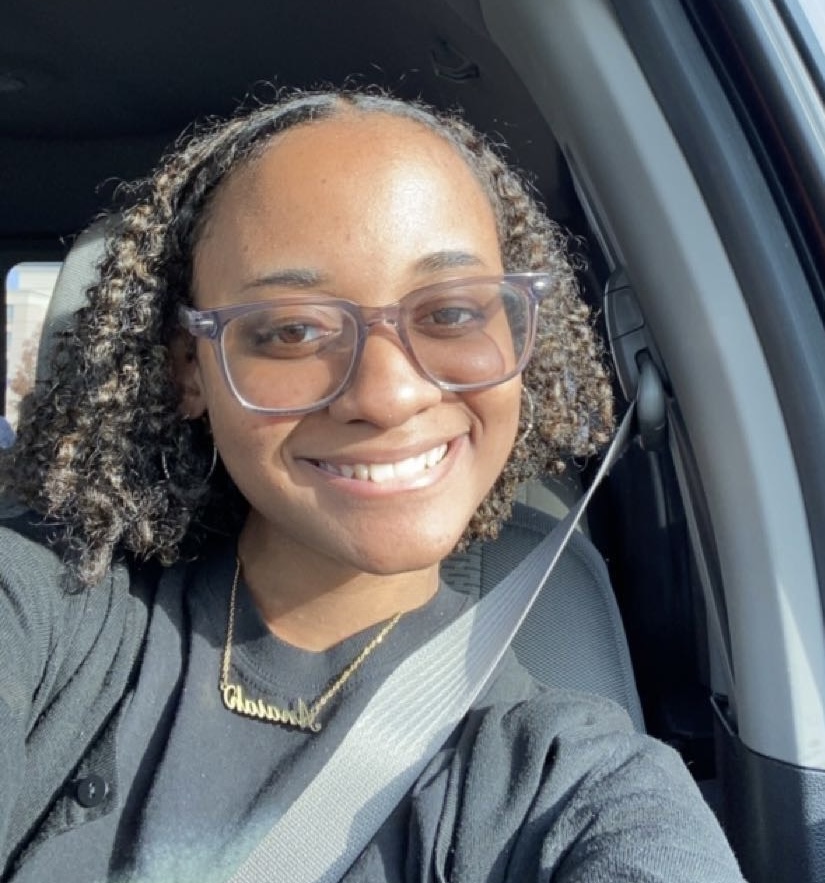I love being Black. Between the cultural references, sitcoms and music, there is so much to celebrate. Every Black History Month, it’s great to see the push for people to further acknowledge Black history, achievements, literature and media, especially since this should happen year round.
But this month also reminds me of a time in my life when I was at odds with my Blackness.
Looking back, an experience I had in the second grade comes to mind. It was a time when all I cared about in school was acing my spelling tests and reading books during recess.
One day, my teacher told us to draw a picture of a classmate and write a short profile on them. I wasn’t particularly close with anyone, so I partnered up with the girl sitting next to me. I eagerly started my drawing, trying my hardest to portray her features as perfectly as they seemed to me – flawless fair skin, bright blue eyes, shiny blonde locks.
When the time came to reveal our work, I was stunned by her depiction of me, yet not surprised at all. To be honest, she had captured me well. My brown skin, big forehead, wide nose and short dark hair were drawn just right.
I looked around at the class and, for the first time, being the only Black student in the room sunk in, giving me a feeling that has stayed with me ever since. I felt like I stuck out in the worst way possible, reminded that everything about me was different from my peers.
I wanted to fit in. Admittedly, being shy, awkward and talking a million miles an hour did not make it any easier.
At that point, I refused to wear my natural hair, annoying my mother with constant pleas until she agreed to straighten my beautiful curls. I took pains to cover my darker elbows and knees to hide my uneven skin – let’s just say I bravely endured several sweltering summers in sweaters, leggings and jeans.
I didn’t realize until later that by embarking on that quest to conform, I had internalized racist ideals and projected them onto myself. I believed my natural hair and skin were inferior to those of my white counterparts. Gazing in the mirror each day, I struggled to notice the same beauty I saw when I looked at other girls in my class.
No matter what I did, I was still different, and at the time no amount of love or reassurances at home could convince me that being different didn’t mean being inferior.
It didn’t help that, as I ventured into middle school, everyone was crushing on everyone else and no one noticed me. Obviously I wasn’t expecting a marriage proposal in the sixth grade, but to see everyone forming those minor attractions and being left out made me feel all the more inadequate. Even worse, I was seemingly ignored and cast aside even by boys of my race, which was a hard and confusing pill to swallow.
Thoughts played in my mind like a record on repeat. Am I not pretty enough? Am I not worthy? Is my nose too big, my hair too short?
This went on for years, eventually coming to an end during the first half of high school. I don’t recall a specific moment that snapped me out of that phase. I suppose it was the result of gradually realizing everything I had internalized wasn’t true. I became friends with other Black girls my age and started paying attention to all the things I had to love about myself.
The truth is I am and always have been amazing just the way I am, but for a while I was caught up in believing otherwise. The reality that people who look like me have never been the standard of beauty had also finally registered.
But the standard is irrelevant. Nothing about me is standard, and no one should base their worth or self-esteem on arbitrary and racist measures of beauty.
Throughout my academic career, I’ve only studied at predominantly white institutions. Needless to say, by the time I got to Bradley I was already used to being the only Black person or one of a very few in classes. All these years later, I no longer feel out of place or inferior, but I still look around the room and take in all the faces like I did that day in second grade.
The difference is now I love being different because I know it makes me unique and wise in ways some people will never truly understand. I walk into every room, meeting, conference and interview holding my head full of curls high.
I’ve grown to adore my Blackness. More than anything, I’ve learned to not second-guess myself in primarily white environments and that even when I do, there are so many inviting Black spaces around to provide community and understanding.
In a speech delivered in 1962, civil rights activist Malcolm X said the most disrespected person in America is the Black woman, and this is true in many ways. Without a doubt, being a Black woman isn’t always easy, but I wouldn’t have it any other way.





